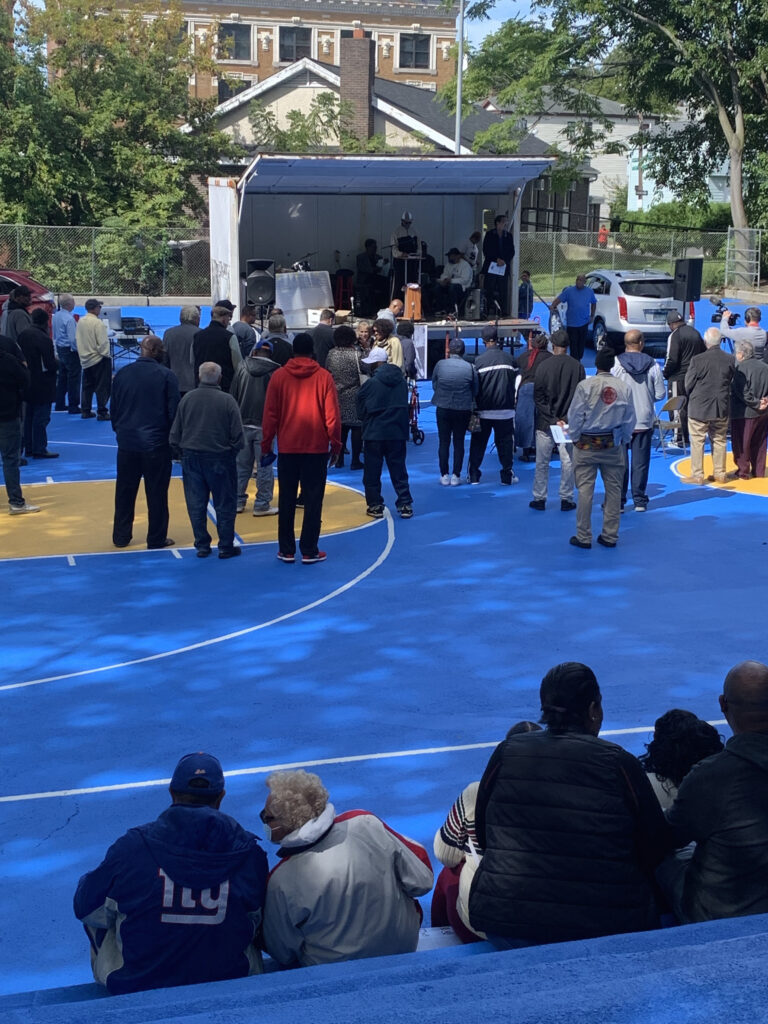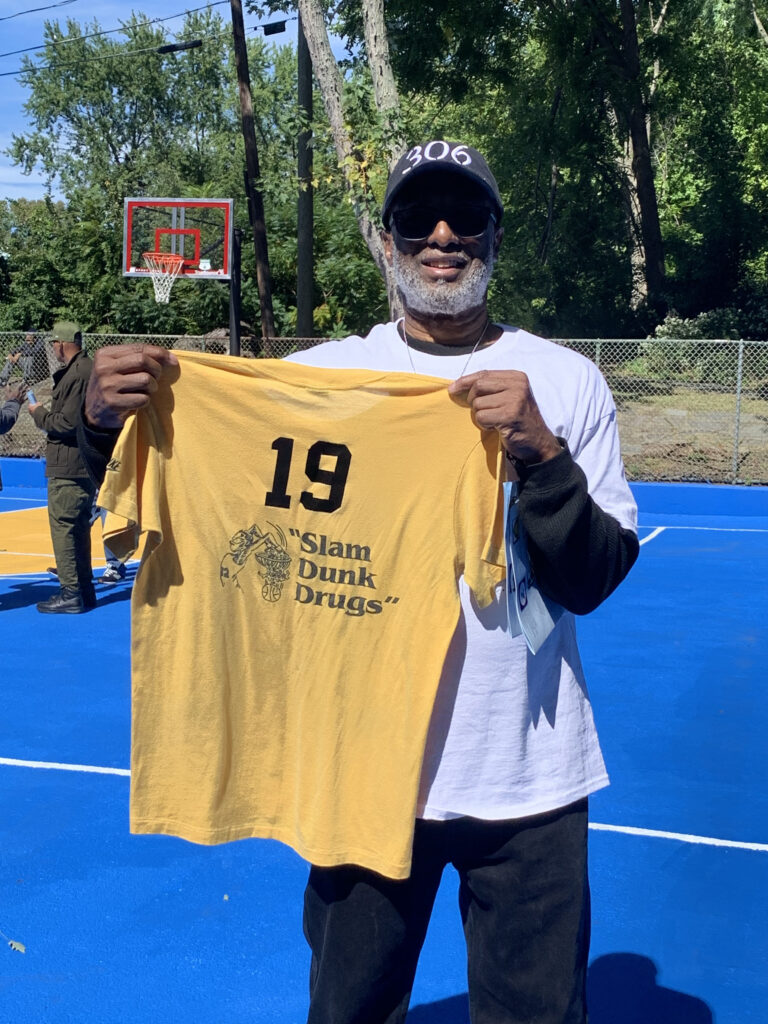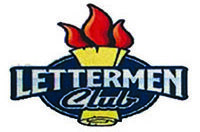
The basketball courts at Martin Luther King Jr. Park in Waterbury, were dedicated September 24 in the name of Hubie Williamson, a former community advocate and founder of the legendary Pearl Street summer basketball league, who passed away in 2020 during the COVID-19 pandemic.
The dedication effort was initiated by The Lettermen Club – a city-based organization dedicated to community service – and supported by the City of Waterbury’s Park Department, the Greater Waterbury YMCA, AI3 Leadership Academy, Full Court Peace and the Police Activity League of Waterbury.
“This dedication is a fitting honor for a man who touched so many lives in this city, through basketball and in other ways,” noted State Representative Larry Butler, D- 72nd District, who served as master of ceremonies and was among a number of speakers paying tribute to Williamson on a bright, cool Saturday afternoon at the park.
Members of Williamson’s family joined area residents and former Pearl Street participants for the ceremony, which also included the unveiling of a new sign for the Hubie Williamson Courts, the reading of an official city proclamation and musical performances by The New Marveneers and members of 3-D Music Academy.

during the ceremony honoring Hubie Williamson.
The Pearl Street summer league was started in 1973, and a short time later Williamson symbolically moved the seasonal league to the courts at the then-new Martin Luther King Park, which was built near the city’s North Square on properties that were razed following race riots in the late 1960s.
Envisioned as a way to bring together youth of all backgrounds through athletic competition and provide an alternative to illegal activities within an urban environment, the Pearl Street league – with its team shirts emblazoned with the “Swish is a Summer Sound” motto – caught on quickly in the city’s and region’s hoop circles.
By the end of its first decade, league divisions of various ages and levels were implemented, with the high school age groups drawing participants from around the area and the unlimited phase not only including top basketball players from Waterbury, but drawing talent from around the Northeast. With NBA and college players competing, Pearl Street was even included among listings of the top summer hoop leagues in the nation by various publications.
The league was so popular that Williamson added holiday tournaments during the high school basketball season – bringing some of the top teams in the state to face Waterbury schools – as well as sponsoring local teams on trips to events in other parts of the country.
Williamson’s orginal purpose remained throughout the league’s growth over the years, offering a positive recreational activity while encouraging participants to focus on school grades and attendance. Diversity remained another theme, and at times more than half of the players in the Pearl Street League were suburban youth.

at the dedication ceremony.
During the Pearl Street league’s 34-year run, 53,000 children, teens, high schoolers, college players and adults, registered in four league divisions: Mini-phase (boys ages 12 and under); Phase I (boys/girls ages 15 and under); Phase II (returning high school boys/girls), and Phase III (unlimited men and women).
“For those of us who balled in the late 1960’s through the ‘90s, the Pearl Street League not only provided us with one of the most competitive summer leagues in the country but also served as nightly recreation for thousands of spectators and hundreds of younger players in age-appropriate divisions,” says Joe Summa, who led Sacred Heart High to a state championsip in 1967 and went on to star at Wesleyan University and play for years in city leagues.
“More significantly,” added Summa, “the friendships and relationships forged by the competitive fires of the Pearl Street League have bonded us as family, some of us for over a half of century. Many of us in the basketball community have been searching for an appropriate way to both show our appreciation and to honor Hubie’s legacy.”
Summa, who was among the former city hoopsters and community groups involved in the effort to dedicate the Hubie Williamson Courts at MLK Park, explained: “Martin Luther King Park is not only inexorably linked to Hubie and the Pearl Street League, but it is also hugely significant to both our basketball culture and our racial history.
“While the Pearl Street league was founded to provide recreational opportunities for inner city youth, it was also specifically designed to address, through basketball, the racial divisions and tensions that existed at that time,” continued Summa. “It is this history that makes this project so important and worthy of universal support from our basketball community,” says Summa.
